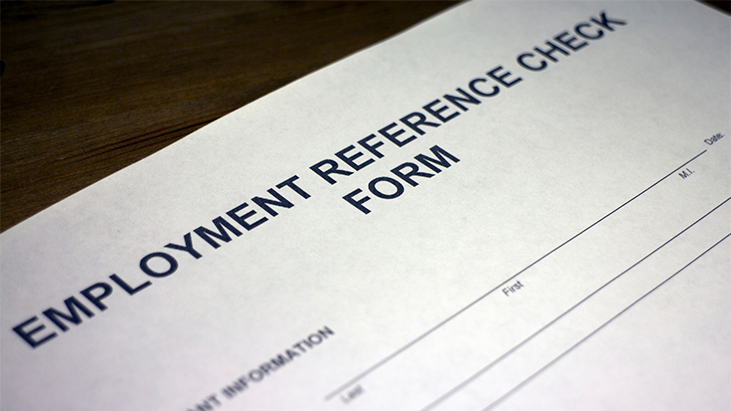How Can Returning UK Expats Get Mortgages? part 2 – Part one is here.
7 Things Lenders Look For In Expat Mortgage Application
Not all expatriates are created equal. If you want to be approved for an expat mortgage abroad, each lender has particular requirements that they look for in applicants. Here are seven things lenders look for in expat mortgage applications.

1. Proof of Employment
All lenders need to make sure that you can afford your monthly payments before extending the offer. Employment verification is important information that lenders look for in expat mortgage applications. To prove your income, you could submit proof of continuous employment, such as a letter from your employer, payslips, or contracts. Most financial institutions also accept references.
2. Proof That You Can Afford Closing Costs
Lenders require that you have the financial capacity to afford closing costs. Closing costs are fees charged when purchasing or refinancing your home.
These costs may include application fees, appraisal fees, lenders’ title insurance policy premiums, escrow agents’ charges, and other miscellaneous third-party charges. The exact amount of these fees varies according to local customs and related factors, such as where the property is purchased.
3. Proof of Identification
In addition to employment verification, lenders also require proper identification from expat applicants. It’s highly recommended that you bring all your original identification documents with you, so there are no delays in your application process. If you have ever had a driver’s license, passport, or other government-issued identification, bring those documents as well.
4. Proof of Residency
Even if you’ve lived in your current residence for many years, you will need to prove that this is the place where you currently reside and make it your permanent address. You can provide proof of residency with a statement from a property owner, a copy of your lease, a letter from your employer, and utility bills.
5. Proof of Your Income and Expenses

Many lenders also ask for proof of income and expenses to determine how much you can afford to spend on housing each month. You could provide these documents with pay stubs, bank statements, or credit card receipts that provide an accurate record of your earnings and spending over the past six months.
6. A Completed Borrower’s Worksheet
The borrower’s worksheet is a short questionnaire that helps lenders calculate your debt-to-income ratio, which is an essential factor when deciding whether or not to approve you for an expat mortgage. Your monthly income minus your recurring debts equal the borrower’s discretionary income.
The lower this number, the better! However, lenders will consider other factors besides your discretionary income, such as your credit history and score, when making a final decision about whether or not you should receive an expat mortgage.
If you can meet all of these requirements, you’re likely to be approved for financing. If it seems too much information for any lender to ask, then perhaps it’s time to look into different avenues for financing your home abroad.
7. A Good Credit History
Good credit history is another factor that lenders will review when deciding whether or not you should be approved for an expat mortgage. This means; the better your credit score, the more favorable your chances of approval.
Having a long and detailed credit history also helps build up your credit score, so it would be in your best interest to apply for credit cards, car loans, and other forms of financing before you apply for an expat mortgage.
Persuading Lenders to Get Mortgage in the U.K
Lenders are incredibly strict on whom they accept as a loan applicant, and this is no different in the UK. In fact, the process of getting a mortgage may be harder for expats than it would be for their British counterparts. This is due to expat applicants being at a greater risk of not being able to afford repayments if something happens, such as having to leave the country due to work.
Lenders will consider this risk and use it when deciding whether or not a person is granted a mortgage. Without further ado, below are the things to do to persuade lenders to get a mortgage in the U.K. as a British or foreigner.
Show Proof of Employment

The first thing that must be done is to show proof of current full-time employment. Documentation should include the following:
- A letter from your employer, which states your position and salary
- Copies of monthly payslips for at least the last month (more if possible). Expats who are still waiting for an offer of employment may still be granted a mortgage with lenders, but they must find full-time work as soon as possible.
Show Proof of Income Over 3 to 6 Months
If you cannot show monthly payslips, then lenders will want to see either the last three or six months’ worth of bank statements (sometimes even more). On the bank statements, it is crucial that there are no gaps in employment and that the income remains consistent.
Get A UK Guarantor
Some British lenders may still accept foreigners without any credit or employment records in the UK if one person who meets their requirements is willing to be their guarantor. This does not mean that this person has to give a guarantee on the mortgage, but rather that they must have substantial employment and credit records themselves to vouch for the loan applicant’s ability to pay it off.
The Right Kind of UK Property
Expats should consider that the requirements of lenders may change depending on whether they are considering buying a house or flat. For flats, many lenders will require that the applicant does not own another property in the UK.
Finding an Accepted Lender
Some lenders cater to expat borrowers but finding them can be challenging as most lenders do not advertise themselves as expat-friendly. The best way to find a lender is by asking them if they have specific standards. Some lenders will clearly state on their website that they do not accept international applications, but it can be worth enquiring about this with those that do not mention it.
Maintain a Good Relationship with Your Lender
In some cases, expats or foreign applicants may get turned down by a lender even though they meet all the requirements. If this happens, it is helpful to maintain a good relationship with them; lenders will sometimes make an exception and offer a mortgage after additional time has passed.
Transferring Pension Savings into A UK Account

Expats who transfer money into the UK to buy a house can benefit from transferring their pension savings as well. This is because they will include this money when applying for a mortgage even though it has not technically entered the country yet. Expats should note some conditions on this, such as the amount of time one has had their pension pot saved up.
Paying a High Deposit Up Front
Many lenders in the UK require that expats pay at least 20% of the value of their property to get a mortgage, which can be challenging if one does not have enough money saved up. One may ask friends or family for financial help or try to set up a savings contract with a bank.
Getting a High Enough Salary
Many lenders in the UK use income multiples when deciding whether to give an expat a loan. This means that they will divide one’s annual salary by a certain number to develop an amount similar to how much one would make monthly. Expats should have at least three years’ worth of good employment records that show their income to be higher than this amount.
Getting A UK Credit Card

Expats should explore the possibility of opening a credit card in the UK if they do not already have one, as it can help them build sound financial habits for obtaining future loans. One should research which cards are best for this purpose and always pay their monthly balances in full.
Having a Long Employment History
Lenders in the UK prefer borrowers who have been employed for many years as it shows they will be able to pay off any loans they take out. Expats looking to build up an employment history should consider moving to the UK.
Final Verdict
Getting an expatriate mortgage in the U.K. can take some time and effort, but it is possible to get a mortgage while living outside of the United Kingdom. This could happen whether you’re an expat or a U.K citizen. Nonetheless, if you’re looking for a mortgage while planning your move back to the UK, refer to this guide to know it all.


